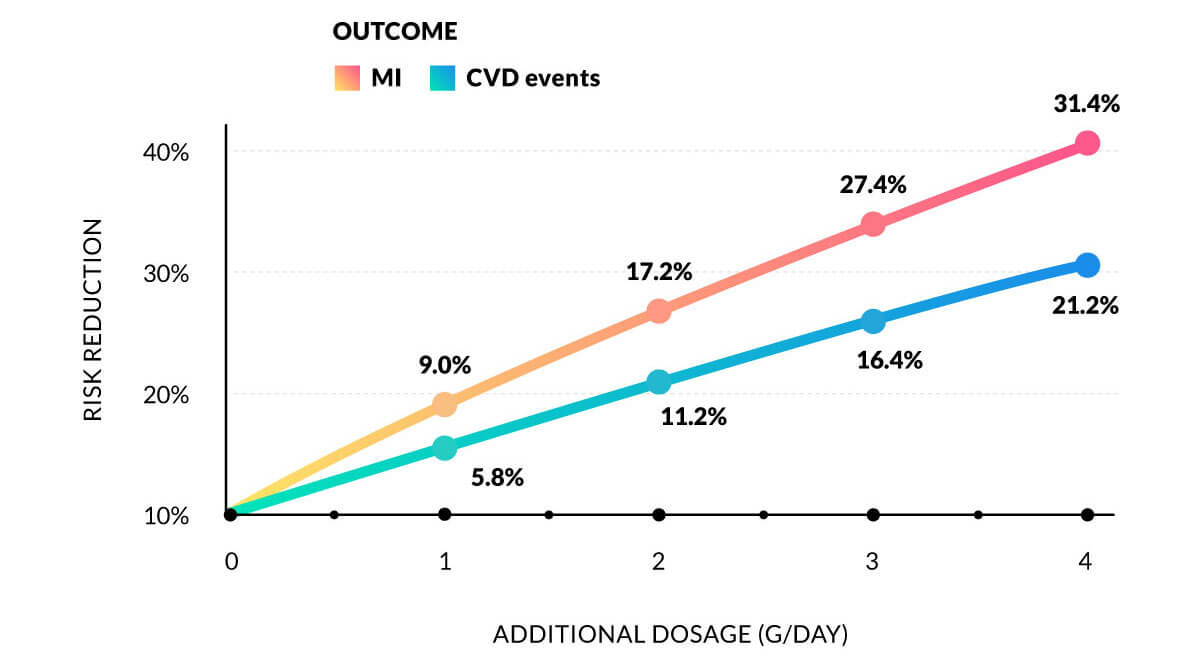One of the questions I am often asked is ‘Why does Intelligent Labs recommend so much omega 3 per day’? It’s a good question and yes, it’s true, our recommendation is certainly at the upper end of the recommendations of different brands in the industry.
We recommend a 3-capsule serving of our Triglyceride Omega 3, which comes to 2250mg of omega 3’s a day. Most of the other high-quality omega 3 brands will recommend just 2 of their capsules, which will normally come to between 1000mg and 1500mg of omega 3’s per day.
My reply has always been that the more you take, the better it is for you. However, from time to time I would run into a problem, where I would be sent some published research which actually seemed to show the opposite was true, and that omega 3’s weren’t actually beneficial at all!
The problem with many omega 3 studies…
This is where the science could often be frustrating, in that many studies would simply have the subjects split into 2 groups. One that didn’t supplement with omega 3, and one that did. The problem with this is that what happens if the supplementation group isn’t given enough omega 3?
There were in fact relatively few studies that actually investigated both the impact of omega 3 supplementation against no supplementation and also the effect that different amounts of omega 3 supplementation had on cardiovascular disease risk.
For me, it seemed only natural that if you are going to try to work out if it’s a good idea to take omega 3, then you also really need to work out how much omega 3 is a good idea to take. However, there were only a small number of studies that actually wanted to work this out!

A new study that actually answers the question on omega 3 and heart disease!
So, I was really excited when there was a recent meta-analysis published in the Mayo Clinic Proceedings Journal that looked at exactly this. “What is the Effect of Omega-3 Dosage on Cardiovascular Outcomes?“, was published in September 2020 and is a meta-analysis. A meta-analysis is a study that looks at multiple other studies done previously and collates all of the results together to attempt to come to a better conclusion than just using the results of any single study.
The authors used 40 other studies that had a combined 135,267 participants that specifically looked at the effects that different dosages of omega 3 had on Cardiovascular Disease Events and Myocardial Infarction (aka heart attacks).
Cardiovascular Disease Events were classed as a combination of different manifestations of heart disease and included heart attack, angina, stroke, heart failure, peripheral arterial disease, sudden death, and non-scheduled cardiovascular surgical interventions.
The other great thing about this meta-analysis is that they only included studies that looked at different doses of omega 3 and did NOT give any other dietary advice. So, the study participants continued with the diet they have always been eating. This is a really important differentiator, because if a study shows the risk of heart disease changes and people take omega 3 and change their diet, how do we know which one is responsible? Removing studies that offer dietary advice gets round this problem.

What the science says…
The studies ranged from 400mg of omega 3’s a day all the way up to 5.5 grams (5500mg). Here is what the researchers found:
* They found that there was a dose-dependent reduction in the risk of Myocardial Infarction of 9% for each additional 1g (1000mg) of omega 3 supplementation.
* They also found that there was a 5.8% reduction in Cardiovascular Disease Events for each additional gram of omega 3 supplementation.
Both results were statistically significant. These results are best understood by looking at them plotted on a graph as below:

So, from now on my job will be a little easier when it comes to helping people decide on an omega 3 dosage to take, and in explaining why we tend to recommend a little more than other companies!
Reference:
Bernasconi, Aldo A., et al. “Effect of Omega-3 Dosage on Cardiovascular Outcomes, An Updated Meta-Analysis and Meta-Regression of Interventional Trials.” Mayo Clinic Proceedings, 2020. Crossref, doi:10.1016/j.mayocp.2020.08.034.




